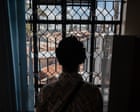
How a Brazilian meat tycoon accused of bribery and deforestation became a key player in regional diplomacy
Joesley Batista is credited as a major force behind the reconciliation between Trump and Luiz Inácio Lula da SilvaSix international airlines had...








